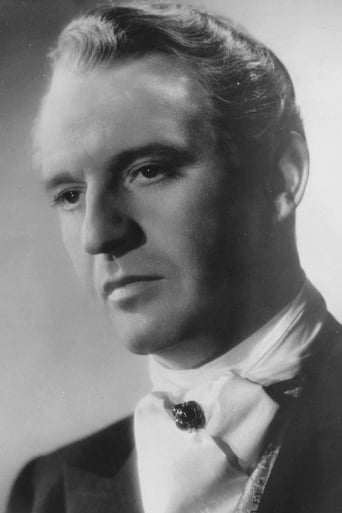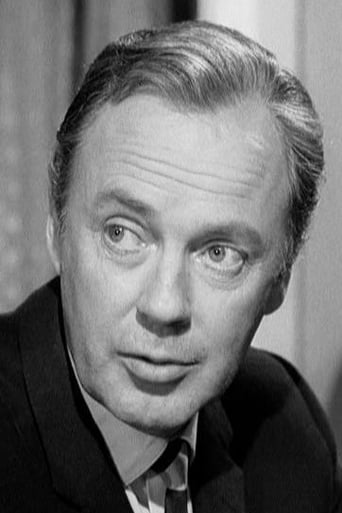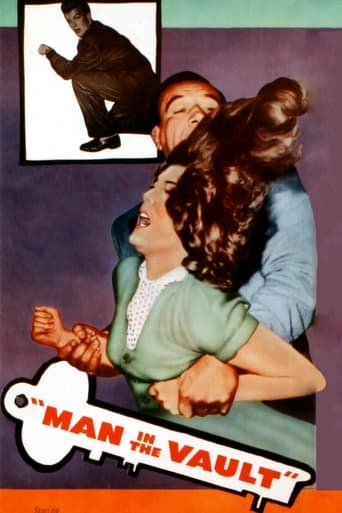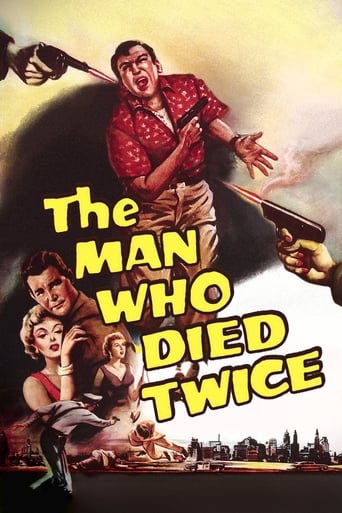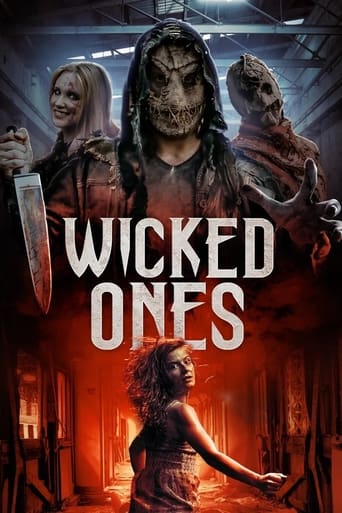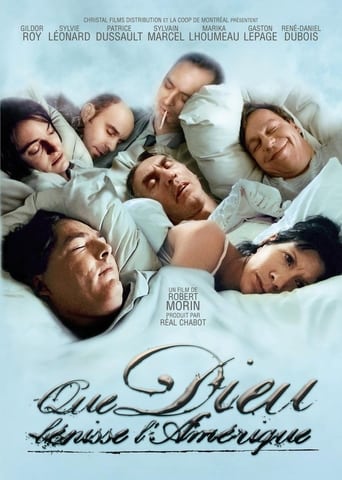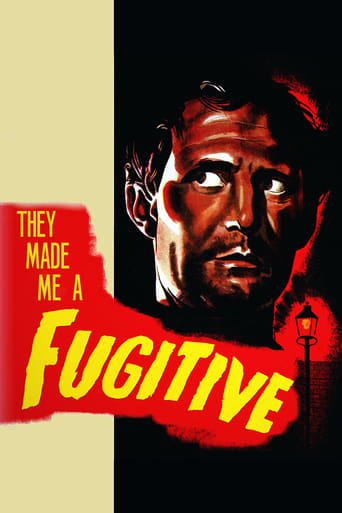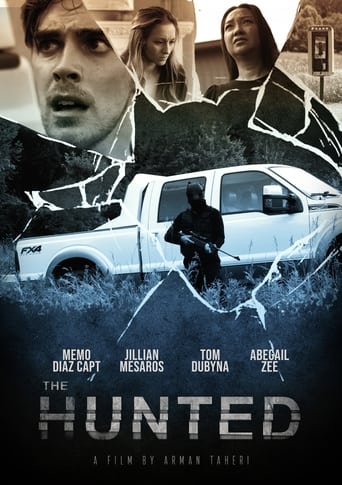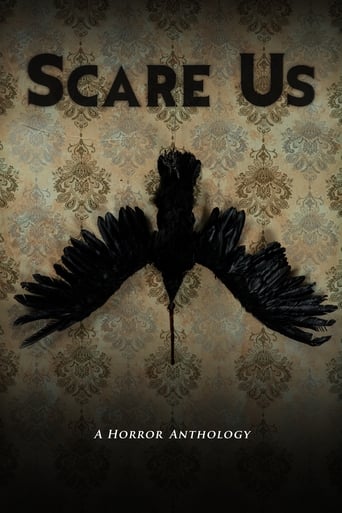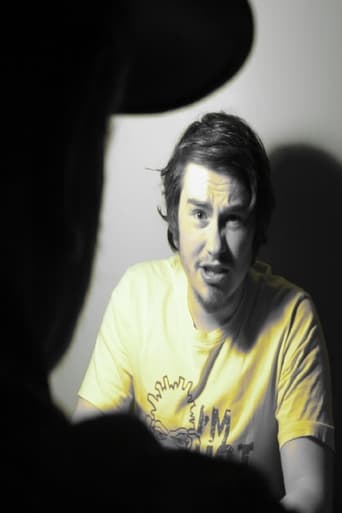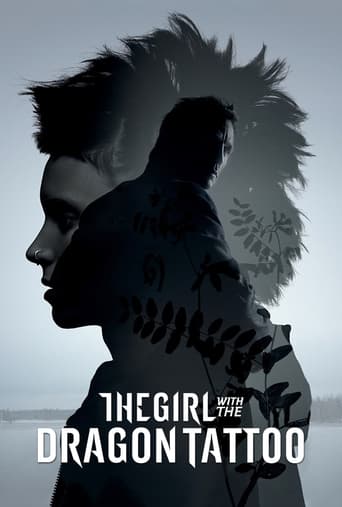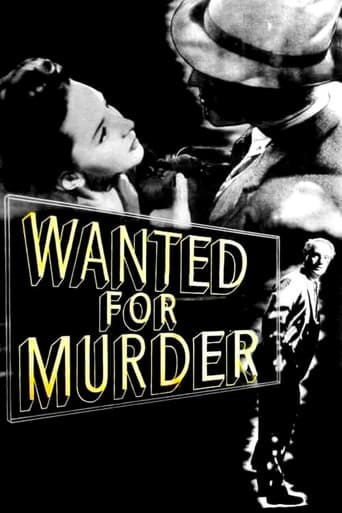
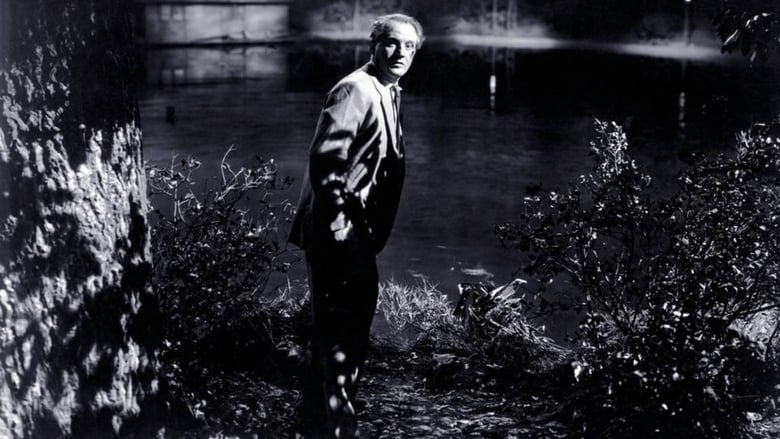
Wanted for Murder (1946)
The son of a notorious hangman is gradually becoming insane and he finds himself unable to resist the urge to strangle women to death.
Watch Trailer
Cast
Similar titles
Reviews
The Worst Film Ever
Best movie ever!
As somebody who had not heard any of this before, it became a curious phenomenon to sit and watch a film and slowly have the realities begin to click into place.
This is one of the best movies I’ve seen in a very long time. You have to go and see this on the big screen.
After years of wartime austerity, picture going resumed in Britain in a big way with the spectacular success of "The Wicked Lady", a Technicolour costume extravaganza. But strangely another genre to find favour was the psychological crime film and no actor could create quiet menace, the type that simmers under a surface of normality quite like Eric Portman. His smooth speech usually meant he was often able to fool everyone and get away with murder - until the last reel. In this film he plays Victor James Colebrook, a man who seems to hold everything under control but is still capable of violent outbursts. Only his mother seems worried about his moods - his father had been a notorious hangman whose mind snapped and ever afterwards was only happy when he was carrying out his grisly occupation. Victor has inherited the madness and as the film opens he is already stalking his latest victim. He is engaged to a sweet girl, Anne (Dulcie Grey) who works in a music store but the first scenes show her meeting someone else - a love struck bus driver, Jack (Derek Farr) and she has fallen for him as well.The film explored many avenues, it was moodily atmospheric with director Laurence Huntingdon taking full advantage of Eric Portman's deep moods and mask like face. Has some very Hitchcockian moments, I wondered if Hitchcock had seen this movie when he planned "Strangers on a Train" and the eerie carnival and island sequences of that movie? In one scene Victor is in a mist enshrouded park with a naïve Irish girl but just after he kills her an American serviceman and his girl come across them. With the deepening fog he is able to shield his identity while offering the asked for matches. Then there was the orderly view of police procedure - Stanley Holloway in a rare straight role as the constable who makes the connection between Colebrook and his notorious father!!With a climax resembling "The Blue Lamp" - the police pinpoint Colebrook and his next victim in Hyde Park and begin a no-nonsense public exodus of the grounds. Dulcie Grey who had scored a critical success in her last film "They Were Sisters" was amazed to find herself dropped after the studio felt her portrayal was too realistic!! Soon after Eric Portman requested her to co-star with him in "Wanted for Murder" and, according to Miss Grey, he was a "darling"!!Highly Recommended.
1946 - when women were still wearing that strange 40s aesthetic with huge, unflattering hair styles. See Colebrooke's secretary, who thinks he'll marry her one day when in fact he is planning to strangle her on Wimbledon Common. (Not a spoiler, we know he is the killer from the start.) I like Derek Farr, and the scene where he picks up Anne on a tube train that's broken down. Dulcie Gray must have been about 30, and I'm sorry, but she doesn't look as young as her character is meant to be (19 or so?). The scene at the fair is good, too, with the Punch and Judy man and the gramophone operator. It's nice to see Bonar Colleano as an American soldier and witness, and Kathleen Harrison is good as the Colebrookes' maid. Mrs Colebrooke, as another commenter said, gives us a glimpse of acting styles of the past (circa 1840). There are effective moments as Colebrooke's skinny, moustachio'd tail follows him along the river bank, and there is a splended scene as Inspector Conway overrules the jobsworth of jobsworths. Best moment, though, is when squads of coppers in old-fashioned helmets, and on horseback, descend on Hyde Park. Colebrooke attempts escape by boat and by water. High melodrama in the Serpentine is a challenge, but Eric Portman rises to it. It's all rather ludicrous, and not a patch on Canterbury Tale or Dear Murderer. Yes, there's much too much faffing about at Scotland Yard, and the intended humour just isn't funny, despite Stanley Holloway's efforts.The sound on this transfer is so bad that some of the dialogue is lost.
Eric Portman (Viktor) is the grandson of a notorious hangman. His grandfather's sadistic, psychotic reputation as a killer plays heavily on Portman's psyche. Actually, it does more than that - it influences his behaviour. However, he is unable to change who he is. A serial killer is at large murdering women and goading the police. Can Roland Culver (Inspector Conway) and his team prevent the killer from striking again and again....? This film contains some dodgy accents, in particular, a very posh bus driver as played by Derek Farr (Jack) and a young Scottish woman, Jenny Laird (Jeannie), who comes from absolutely nowhere in Scotland. There are humorous moments eg, Stanley Holloway's portrayal of "Sgt Sullivan" and Gerard Kempinski as a waiter, alongside tense dramatic sections, eg, the murder of Jenny Laird (Jeannie) in the park. I found Barbara Everest as "Mrs Colebrooke" slightly weird b t it's a minor point in an otherwise convincing tale of a killer who is born to kill. We are left in no doubt as to who the killer is from the beginning and this adds to the tension throughout the film. I thought that the killer's fate was rather convenient - an easy way to end the film - but it's still a good film.
Erudite British effort where the strangler comes off as quite civilized. He's quite the gentleman, really, just has this problem with his hands.Really enjoyed Stanley Holloway as the #2-cop on the case. Stanley doesn't break into song but he does provide some comedic relief--subtle stuff, no slapstick.You can't help but be fascinated by the many views of London that are pictured (immediately after the war). The buses, street scenes, and various landmarks shown on film tell a story of their own. How times have changed--the record shop scene is a far cry from the rocking London that would follow 20 years later.This is well-written (Emeric Pressburger had a hand in that) story with characters that are decidely human, albeit in the English stiff-upper-lip school.
